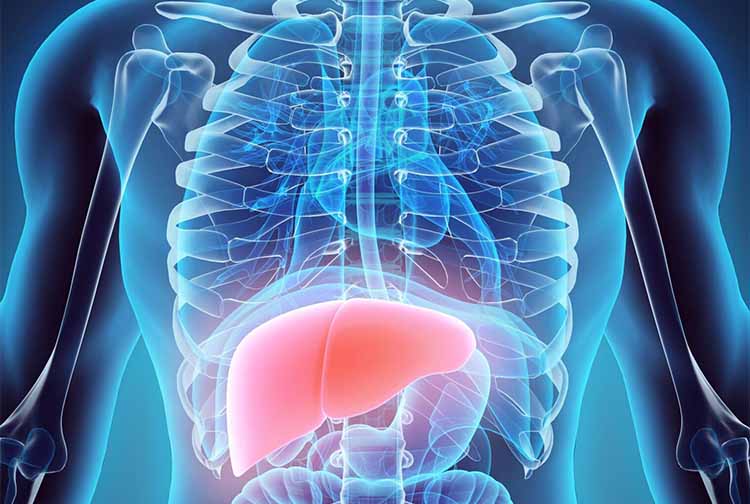
VCU study reveals true burden of fatty liver disease — a disease linked to obesity and diabetes
Study creates road map for future treatments of nonalcoholic fatty liver disease, for which there’s no approved treatment.
November 19, 2021 Photo: Getty Images
Photo: Getty Images
Contributed by C. Kenneth and Dianne Wright Center for Clinical and Translational Research
Many people believe that only excess alcohol consumption causes liver disease. Yet a quarter of adults worldwide have nonalcoholic fatty liver disease, a condition more closely linked to obesity and diabetes than alcohol consumption.
In fatty liver disease, excess fat is stored in the liver. If left untreated, this buildup can cause inflammation, scarring (fibrosis) and full-blown cirrhosis — which can leave the liver permanently damaged. Patients typically are diagnosed when the disease is advanced and a transplant is their only option.
A national study led by Virginia Commonwealth University researcher Arun Sanyal, M.D., provides the first clear picture of the true rates of outcomes in those with nonalcoholic fatty liver disease and shows that people with advanced liver scarring caused by obesity, diabetes and related disorders are dying of the disease.
“The study provides teeth to the recent American Diabetes Association guidelines to start screening for liver disease — to make the screening more mainstream,” said Sanyal, a liver disease specialist at VCU Health.
With screening comes treatment
Published in the New England Journal of Medicine, the research brings new urgency to tests for liver disease, particularly for those with type 2 diabetes, and creates a road map for future treatments of nonalcoholic fatty liver disease — treatments that could prevent the need for liver transplants. More than 11,000 people across the country are currently waiting for a liver transplant.
“Historically, many primary care physicians and diabetes specialists have felt that, because the roots of the disease lie in insulin resistance, if we treat the diabetes we've taken care of the problem,” said Sanyal, who is also a professor in the Division of Gastroenterology, Hepatology and Nutrition in the VCU School of Medicine’s Department of Internal Medicine. “And what this shows is that … just treating diabetes doesn't get the job done.”
Drugs that stop or reverse fibrosis progression could save a significant number of lives. But no medicines are approved by the Food and Drug Administration to treat nonalcoholic fatty liver disease or its more advanced version, nonalcoholic steatohepatitis.
In the U.S., it’s estimated that there are 2 million individuals living with nonalcoholic steatohepatitis and 1.3 million living with fibrosis stages 3 and 4. Based on mortality rates observed in Sanyal’s study, around 40,000 of those people die every year.
Research into fatty liver disease has roots at VCU
Sanyal has been studying these forms of liver disease since the mid-1990s, when he noticed more patients showing up with fatty liver disease and no history of alcohol use disorder.
“It was like a black box with no evidence-based guidance on how to look for, evaluate and manage it. There was nothing known about it,” he said. “And it struck me one day that most of the patients we were seeing had diabetes and high blood pressure, and that this could be linked to insulin resistance.”
Much of the foundational work for this study and many others on nonalcoholic fatty liver disease and nonalcoholic steatohepatitis have their roots at VCU and in the work of its clinical researchers. Sanyal is a leader at the VCU C. Kenneth and Dianne Wright Center for Clinical and Translational Research, which has funded and supported his and others’ investigations.
Nonalcoholic fatty liver disease and nonalcoholic steatohepatitis are only recently identified diseases, Sanyal stressed. “There are still huge knowledge and awareness gaps — both within the physician community and the public.”
The study was funded through the National Institutes of Health’s National Institute of Diabetes and Digestive and Kidney Diseases, and several researchers involved are supported by awards from the NIH’s National Center for Advancing Translational Science.



